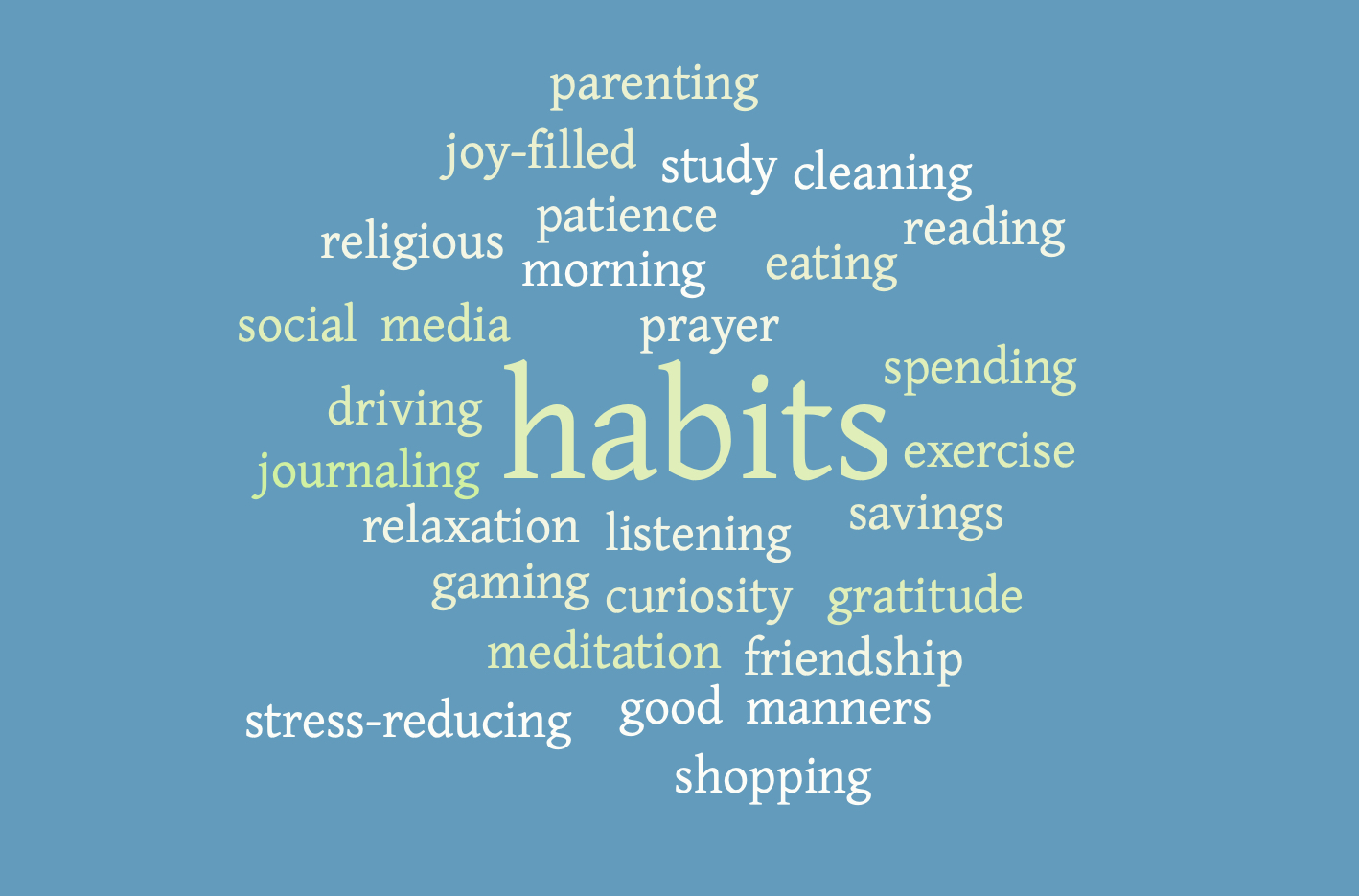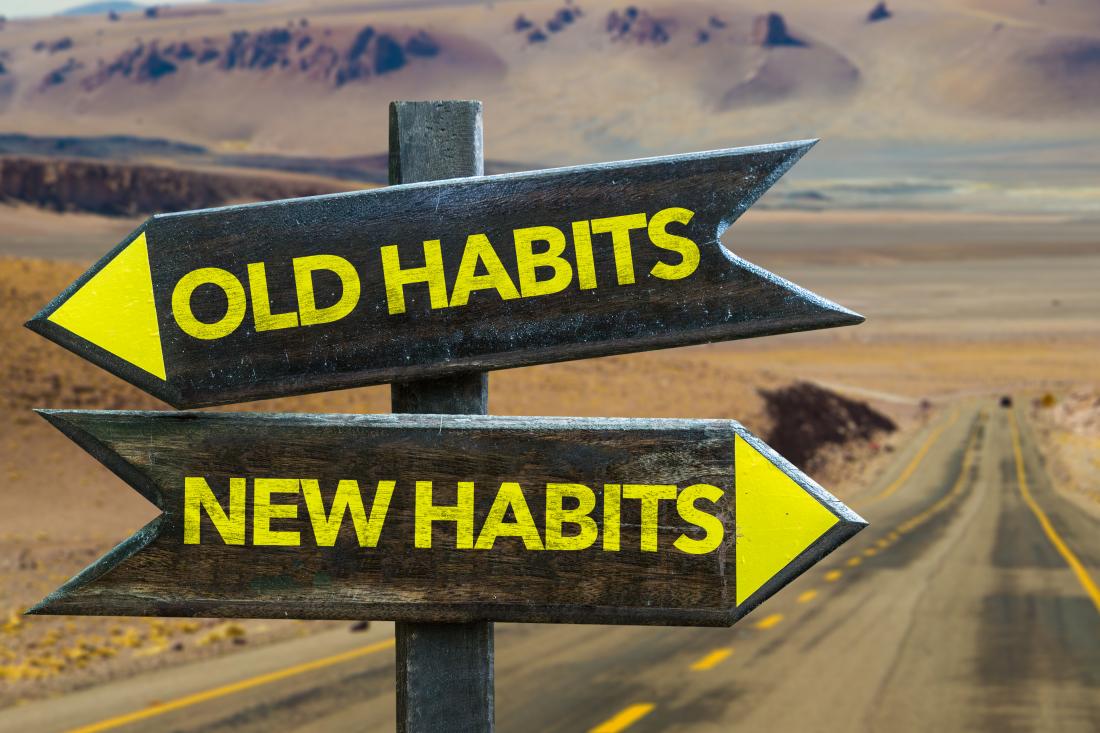New Year’s resolutions
8 strategies to make your New Year’s resolutions stick It's easy to come up with goals for the new year, but not so easy to see them through. Here's how to turn good intentions into long-lasting habits, according to psychologists.
:max_bytes(150000):strip_icc()/keep-new-years-resolutions-copy-2000-37e0fc824e7c4542b835c4a646ca3925.jpg)
One thing that’s never in short supply at the beginning of each new year? Good intentions. But good intentions without the appropriate follow through is why many of us fail to stick with our New Year’s resolutions months (or even weeks) after making them.
It turns out there are commonly avoided mistakes—such as picking habits that align with one’s goals or being patient with the amount of time a habit takes to develop—that explain why some people always seem to reach their goals while others keep falling short.
Here's how to form habits that will help you accomplish your goals in 2024 and beyond.
Choosing the right habits
One's first objective should be choosing the right habits to begin with.

"Habit selection is vital because if you fail to pick the right habit, you aren't likely to accomplish the corresponding goal," says BJ Fogg, director of the Behavior Design Lab at Stanford University and the author of Tiny Habits. He says that a common error many people make is not choosing habits that align with their goals. "Say you want to lose some weight this year," he offers as one example. "Forming a habit of running 30 minutes a day may not help you do that if you don't also form habits related to the foods you eat, because diet affects weight more than exercise."
In other words, if you vow to exercise as a way to lose weight, you must also readjust your diet. Failure to establish habits that align with your goals may cause your resolutions to flop before you begin.
This sometimes occurs because "we’re better at naming desired feelings and outcomes than we are at pinpointing the actions we need to take to get there," explains Christine Whelan, a clinical professor and consumer scientist at the School of Human Ecology at University of Wisconsin - Madison.
How long does it take?
Another common mistake people make when setting goals is becoming overly concerned about the amount of time it will take to form a new habit. While answers abound, including the popular 21/90 rule (which states that it takes 21 days to form a new habit and 90 days to make it a permanent lifestyle change), or the research that shows habit formation taking between 18 and 254 days; the amount of time it takes shouldn't be our top concern.
Katherine Milkman, a University of Pennsylvania Wharton School professor, and the author of How to Change: The Science of Getting from Where You are to Where You Want to Be, says there's no one right answer when it comes to how long new habits should take to form. She co-authored the most recent research on the topic and says, "the answer depends on what habit you’re trying to develop and who you are." She explains that some people simply adopt new habits faster than other people and that complex habits usually take longer to form. Consider how easy it is to brush your teeth at night compared to reading a full chapter of a book each day.
Fogg shares a similar view and cautions against obsessing over the time it takes to form new habits as it can distract from the behaviors and attitudes needed to make habits stick. He says worrying about timing parameters isn't much different than wondering how long it will take to shop for a desired meal.
"Ultimately, the ingredients you put together matter a lot more than how long it will take to get everything at the store," he says.
Forming good habits vs. breaking bad ones
It's also important to note that forming good habits can be quite different from the steps needed to break bad ones.
"Good habits keep us on track with behaviors that are beneficial for us, and bad habits can derail those behaviors," says Benjamin Gardner, a psychologist and the co-director of the Habit Application & Theory Research Group at University of Surrey in the United Kingdom.
Bad habits are also easier to form as they are usually inherently more rewarding or pleasurable than good ones. Behaviors like smoking, for instance, prompt one's brain to release feel-good chemicals like dopamine. Over time, dopamine creates an addiction that leads to repeating the behavior even when we know it isn’t good for us, according to research from the U.S. National Institutes of Health. This connection can be so strong that habits related to drug or alcohol use often require the help and oversight of trained professionals to break.
The good news is that bad habits can be broken, and happy hormones can be triggered by good behaviors as well. "Breaking bad habits can be a complex process that varies from habit to habit, but forming new habits is pretty straightforward," says Fogg.
How to make your habits stick Though not every behavioral psychologist offers identical advice, these eight fundamental practices have been proven in both research and through everyday application:
1. Break big habits down. In the same vein as picking the right habit is the importance of starting small. "Instead of saying, ‘I’ll learn Spanish this year,’” Milkman says, “say, I’ll spend 15 minutes studying it daily.” She points to research that shows that when our goals are bite size, we make a lot more progress than trying to tackle something major all at once.
"You have to make the habit easy enough to do that you don't become overwhelmed and can stick with it long term," Fogg says.
2. Write down your goals. "If you’re serious about change, write your goals down," suggests Whelan. She says that writing your goals down is an important step toward identifying your objectives and being clear about how you want to get there. "By writing things down and setting up a plan to accomplish your goals, you can take a wishy-washy dream and turn it into a step-by-step plan," she says.
3. Build in accountability. Once you've crystalized what you want to accomplish and decided what habits you'll need to form to get there, it's important to build in some accountability. "Going public with your commitment to change makes you more likely to succeed because we all hate being embarrassed," says Whelan. And if you don't want to announce your intentions to a lot of people, finding a friend who shares your goals has been shown in studies to also help with accountability.
4. Establish clear boundaries. There's a reason Alcoholics Anonymous tells recovering alcoholics not to allow themselves a single drink—sometimes the gray area gets too messy.
"Self-control is easier when we have clear, bright lines delineating what we can and can’t do," offers Whelan. That means that if the same sweets keep preventing you from achieving your weight management goals, cutting them out of your diet completely may be the quickest way to accomplish your goal.

5. Redesign your environment. That's one reason it's important to make sure your surrounding environment also matches your objectives. "If you have a goal not to eat certain foods, don't keep them around the house to constantly tempt you," offers Fogg. Similarly, "if you have an environment at home that makes exercise easy, you'll probably work out more." The goal in redesigning your environment, he says, is to "make the unwanted behaviors hard to do and the good behaviors easy."
6. Set up opportunities to repeat the new behavior. Another component of redesigning your environment is setting up opportunities to engage in the new activity again and again. One reason hand washing is such an easy habit to form is that you have opportunities to do it often.
That’s why it could be helpful to keep a book nearby if your goal is to read more or to set a timer on your phone to remind you when it's time to get up and move around if your goal is to be less sedentary. "Repetition is key to habit formation," says Milkman.

7. Celebrate both efforts and successes. As important as repetition is, Fogg says that making new behaviors a positive experience matters even more.
"Emotions form habits," he says. He explains that too often we wait until we get on a scale to measure our progress. Instead, speak encouragement to yourself from the get-go. Fogg suggests telling yourself your new behavior is getting you closer to your goals and that it feels good to be doing it.
Whelan adds that you shouldn’t wait until you’ve reached the finish line to cheer yourself on. “Celebrate even small victories along the way,” she suggests. That could mean simply recognizing that you’ve gotten started faster or with a better attitude than you did the last time last time. “If you can cause yourself to feel a positive emotion by celebrating your efforts, you are more likely to maintain them long term,” Fogg says.

8. Make habits enjoyable. It's also essential to choose habits you know you'll like or to make behaviors you aren't looking forward to more enjoyable.
"You shouldn't be dreading a diet," Fogg says, "and you won't have to if you can find plenty of healthy snacks to stock in the fridge or pantry that you know you'll enjoy." Making a habit more enjoyable could also mean doing it with a friend or listening to music or a podcast you love while engaging in the behavior. Milkman says this is called "temptation building" - a technique that involves combining an activity you know you enjoy with an activity you may enjoy less. "If you hate exercise, try only letting yourself binge-watch your favorite TV shows while you're doing it," she suggests. "The key is to trigger the reward center of the brain by doing something that will make the new habit enjoyable for you," Fogg adds.
He stresses that such techniques are likely not needed for extended periods and that once your brain has a positive association with the new behaviors, it will reward them and remind you to repeat them again and again.
Whelan agrees that if a behavior is enjoyable and ongoing, it will become automatic and eventually require less willpower. "That's when you can go on autopilot, which allows you to focus your mental energy on other things."
Source
https://en.wikipedia.org/wiki/Habit
https://www.merriam-webster.com/dictionary/habit
https://www.betterup.com/blog/good-habits
https://www.familycentre.org/news/post/healthy-habits-8-good-habits-to-have-in-life
https://www.berkeleywellbeing.com/bad-habits.html








































